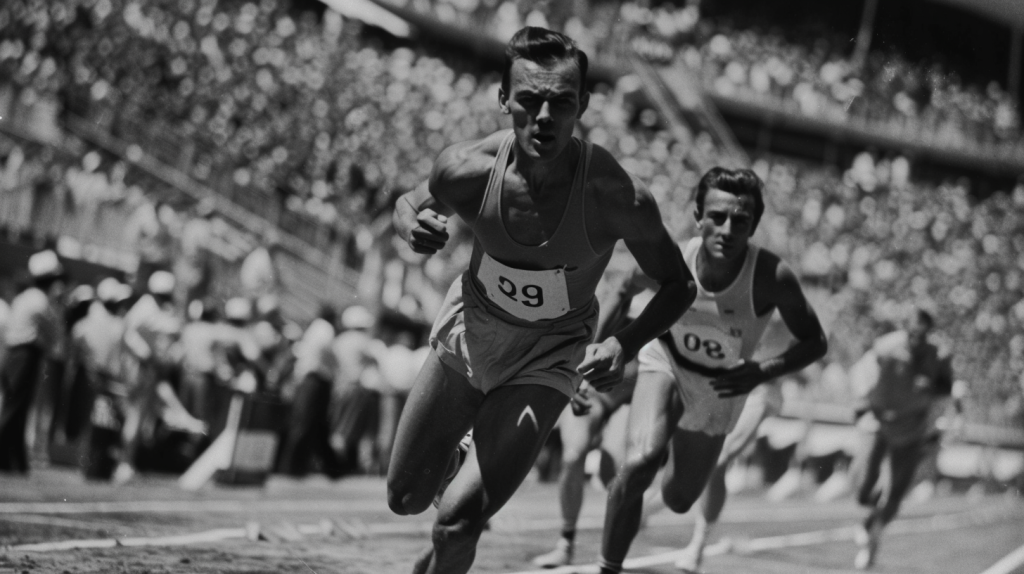In 1948, London hosted the Summer Olympics, known as the “Austerity Olympics.” This was the first Olympics after World War II, and the city was still recovering from the war’s damage. Despite many challenges, the Games showed the world how resilient and united people can be.
A Country Recovering from War
In 1948, Britain was still dealing with the aftermath of World War II. The economy was weak, and many items like food and clothing were rationed, meaning people could only buy a limited amount. The city of London had many buildings that were damaged from bombings during the war. Hosting the Olympics seemed nearly impossible, but the British government decided to go ahead and lift everyone’s spirits and show the world that they were recovering.
Tight Budget
The UK government had only about £730,000 to £750,000 to spend on the Olympics, which is very little compared to the billions spent on recent Olympics. Because of this, they had to be very careful with their spending and focus only on the most important things. This led to the Games being called the “Austerity Olympics.”
Using What They Had
Instead of building new stadiums, the organizers used existing ones. Wembley Stadium, which survived the war, was the main venue for athletics and the opening and closing ceremonies. Other events took place in local parks and community centers. This saved a lot of money and made good use of the city’s existing facilities.
Creative Solutions and Community Help
Because of the tight budget, many creative solutions were needed. Athletes stayed in school dormitories, military barracks, and even office buildings that were turned into temporary living spaces. Local people volunteered and provided resources to help make the Games a success. This community spirit helped everyone come together and feel proud of their efforts.
Amazing Moments
Despite all the challenges, the 1948 Olympics had many memorable moments. Dutch athlete Fanny Blankers-Koen, also known as the “Flying Housewife,” won four gold medals in track and field. She was a 30-year-old mother of two, and her success challenged many people’s ideas about what women could achieve in sports.
The Games also saw the first participation of South Korean athletes under their own flag. Additionally, Alice Coachman from the United States became the first Black woman to win an Olympic gold medal, winning the high jump event.
A Lasting Legacy
The 1948 Olympics showed that even in tough times, the Olympic spirit could thrive. The Games proved that with creativity and community effort, it was possible to create something special. The “Austerity Olympics” continue to inspire people by showing that the true spirit of the Olympics is about unity, perseverance, and overcoming challenges.
The 1948 London Olympics were more than just a sports event. They were a symbol of hope and resilience, showing the determination of the British people and the athletes who took part. The Games left a lasting mark on Olympic history, proving that the real spirit of the Olympics is about coming together and facing challenges head-on.
Ellen has been obsessed with logic puzzles, jigsaws, and cryptograms since she was a kid. After learning she was taught how to play chess wrong by a family friend (so they could win), she joined her school chess club and the rest is history.


